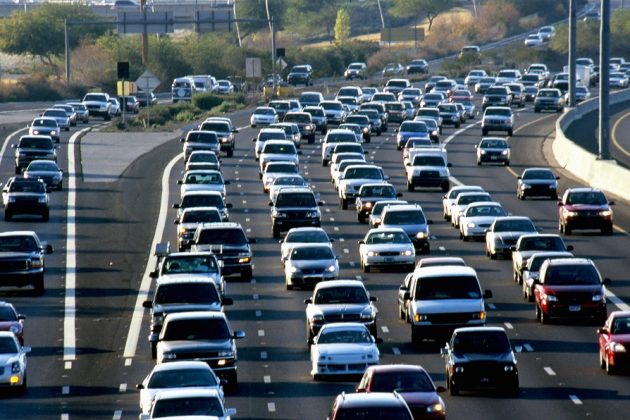
Calm Down About Noisy Neighbors: Highways, Hospitals and Stadiums Bring the Volume
Calm Down About Noisy Neighbors: Highways, Hospitals and Stadiums Bring the Volume. Areas with a high density of busy roads (especially freeways), running water and stadiums generally are the noisiest.
- Neighborhoods with hospitals, with the constant noise of ambulances nearby, also are often noisy. Examples include Houston’s Medical Center Area, Seattle’s First Hill, and San Francisco’s Cathedral Hill.
- Tampa is the noisiest metro with the highest average noise, in large part because its census-designated metro area excludes quieter remote areas.
- The Milwaukee metro area has the top noisiest neighborhoods (its noisiest is Baran Park). The top 107 noisiest U.S. neighborhoods are in and around Milwaukee, followed by Rochester, N.Y.’s Upper Falls in 108th place.
- Despite the perception that the biggest cities may be the noisiest, the loudest neighborhoods are all in small and medium-sized metros like Milwaukee, Rochester, Oklahoma City, Tulsa, Okla., and Laredo, Texas.
Planning a trip to Milwaukee or Tampa, Fla., Bring some earplugs. These metros are awash in the characteristics that make for plenty of noise – freeways, stadiums, hospitals (and the ambulances that drive to them). Milwaukee boasts the noisiest neighborhoods; the top 107 noisiest neighborhoods are in the Milwaukee metro area. Tampa, because its census-designated metro area incorporates little quiet remote space, has the highest average noise level of any U.S. metro.

Counter to the idea that big cities are noisy, most of America’s noisiest neighborhoods are in small or mid-sized metro areas. The top noisy neighborhoods are in Milwaukee, Rochester, Oklahoma City, Tulsa and Laredo – a far cry from bustling mega metros like New York City and Los Angeles. Still, large metros do have noise. New York’s Chinatown, Little Italy, NoHo, Greenwich Village and Lower East Side average around 57 decibels – between the noise level of a rainy day and a typical conversation – and about half the time, they’re even louder. The New York metro as a whole averages much quieter: 43 decibels – about the volume of a refrigerator hum.
On the decibel scale, 0 is the normal hearing threshold for a human. The loudest average noise level in any U.S. neighborhood doesn’t pass 62 – between the volume of a normal conversation and a vacuum cleaner.
Sparsely populated areas are the quietest. The least noisy metro is Rock Springs, Wyo.; the average noise level there sits between a whisper and the rustle of leaves. The vast majority of Rock Springs’s metro boundary contains undeveloped space – few road networks or other noisy features.
The noisiest neighborhoods are often beside running water or bustling highways – as is the case for Willmore City in Long Beach – the noisiest neighborhood in the Los Angeles metro. It’s beside the Los Angeles River, I-710 and the Port of Long Beach.
Hospitals, with the frequent ambulances that travel to them, boost a neighborhood’s noise level. West Woodlawn, for example, is Chicago’s noisiest neighborhood – sandwiched between UChicago Medicine and the city’s highway network, with an L stop to boot.
Stadiums also raise the noise of a neighborhood. The Miami area’s loudest neighborhood – Little Havana – is an example. Nearby Marlins Park Stadium as well as the highways that intersect in the neighborhood raise the volume.
To estimate average noise levels for each neighborhood, Zillow used the U.S. Park Service’s maps of noise. The U.S. Parks Service estimates noise throughout the country by sampling noise levels as a human would hear and informing how those noise levels would vary throughout the country with other variables: airports, helipads, land use, population, water bodies, road networks, and many others. By aggregating these noise estimates up to the neighborhood level, Zillow is able to estimate average noise in over 20,000 neighborhoods and in every U.S. metro.
Source” https://finance.yahoo.com/news/calm-down-noisy-neighbors-highways-100616860.html



